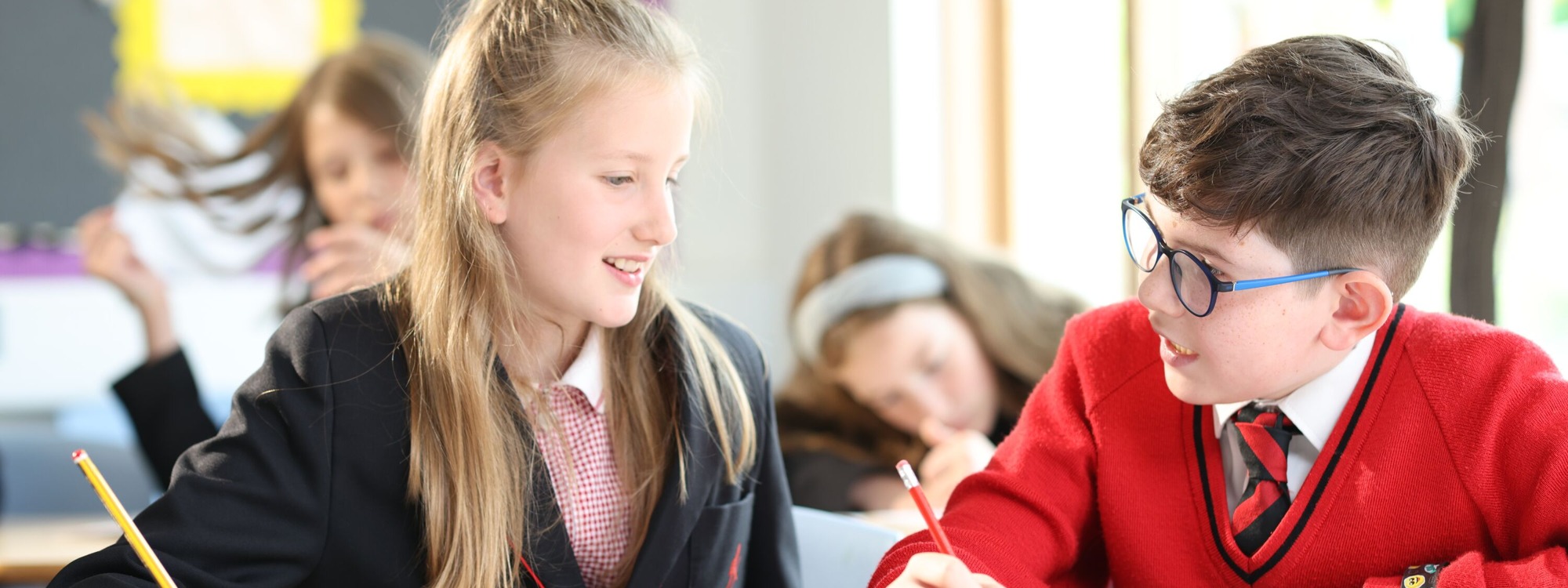- Art and Design Technology
- Computing
- Geography
- History
- Mathematics
- Modern Languages
- Music
- PE
- Phonics
- PSHE & RSE
- RE
- Reading and Writing
- Science
RE
RE stands Religious Education- the study of different religions helping pupils develop knowledge and understanding of the religions and beliefs which form part of contemporary society.
Intent
At SKPS, we follow the Discovery RE scheme, which embeds our focus of inquiry learning. Each new inquiry starts with a question which the children will try to find answers to further their learning. We aim for teachers to feel confident to teach RE and for our pupils to be engaged with the lessons and their learning; wanting to know more about the world around them, different people, faiths, and beliefs. We want the children at SKPS to understand what we have in common as well as the differences people may have; being able to show tolerance, respect, and appreciation for everyone.
Implementation
Discovery RE is a comprehensive inquiry-based planning resource for Religious Education for Years R to 6. The inquiry approach makes RE lessons exciting and engaging for pupils. Discovery RE uses a four-step method for the inquiry which enables pupils to weigh up evidence and reach conclusions. This necessitates children using their subject knowledge and applying it to the enquiry question, rather than this knowledge being an end in itself. The learning is recorded through class floor books, which become more child led and less teacher led as they move through the school. Discovery RE focuses on critical thinking skills, on personal reflection into the child’s own thoughts and feelings, on growing subject knowledge and nurturing spiritual development.
Step 1: Engagement
The human experience underpinning the key question is explored here within the pupil’s own experience, whether that includes religion or not e.g. a human experience underpinning the question, ‘What is the best way for a Sikh to show commitment to God?’ is ‘commitment’, so lesson 1 aims to help all children resonate with the experience of ‘commitment’ in their own lives. If they can relate to this human experience they will be better able to understand the world of religion into which the enquiry takes them.
Step 2: Investigation
The teacher guides the children through the enquiry, pupils gaining subject knowledge carefully selected to assist their thinking about the key question. The acquisition of the factual information about the religion /belief system being studied is important, but not as an end in itself.
Step 3: Evaluation
This lesson draws together the pupil’s learning and their conclusions about the key question of that enquiry.
Step 4: Expression
Children are taken back to Step 1, their own experience, to reflect on how this enquiry might have influenced their own starting points and beliefs. Children’s progress is recorded in a whole class RE floor book which shows the RE learning journey.
Impact
To review the impact and progression of the learning in RE, the subject leader will scan floor books, review planning, speak to the pupils about their learning, visit lessons and reflect on wider practice with class teachers. From this, changes and adaptions will be made to the teaching and learning to support pupils and staff. We want all pupils to learn about different religions, faiths, and beliefs and to speak clearly about their learning in RE.
| Subject Documents |
|---|
| Discovery RE for parents |
| Discovery RE Glossary |
| Discovery RE Overview |







